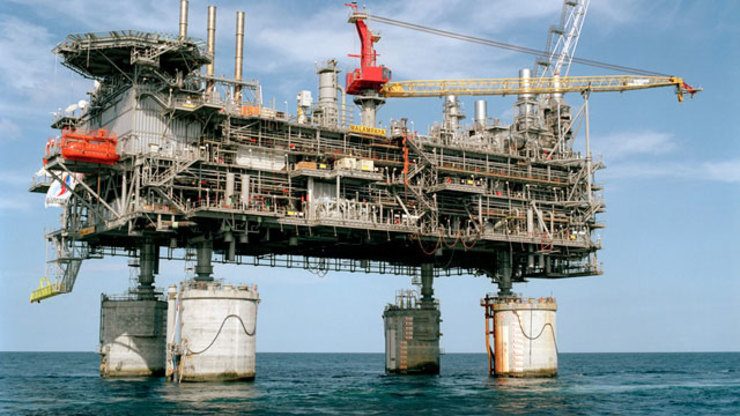SUMMARY
This is AI generated summarization, which may have errors. For context, always refer to the full article.

MANILA, Philippines (UPDATED) – The Commission on Audit (COA) has ordered the consortium behind the Malampaya deep water gas-to-power project to pay the government P53.14 billion ($1.19 billion) in taxes.
The decision dated April 6, but which was made available on Thursday, May 7, overruled the petition of Shell Philippines Exploration BV (SPEX), Chevron Malampaya LLC, and the Philippine National Oil Company-Exploration Corporation (PNOC-EC), together with the Department of Energy (DOE), that the income tax of contractors was already assumed in the government’s 60% share in Malampaya proceeds.
But state auditors said there is no provision in the law which specifically provides that the income taxes of the contractors will be part of the share of the government.
Thus the consortium is now ordered to pay the government P53,140,304,739.86 ($1,189,310,745.57) representing underpayment of its 60% share in the Malampaya project COA declared.
The Malampaya project fuels 3 natural gas power plants with a combined capacity of 2,700 megawatts (MW), equivalent to about 36% of Luzon’s power generation requirements.
The government and the consortium, which wants a 15-year extension of its service contract to 2039, are discussing the issue. The license granted to the Malampaya consortium to conduct exploration and drill activities under SC no. 38 is valid until 2024.
Overruled
In an 11-page decision, COA overruled the position of DOE, SPEX, Chevron, and PNOC-EC that the contractors’ income tax was deductible from the government’s 60% share of Malampaya’s earnings.
The ruling was signed by COA officer-in-charge Heidi L. Mendoza and commissioner Jose A. Fabia, affirming the notice of charge issued on October 5, 2010, along with the audit finding that the DOE has an under-collection of P53.14 billion ($1.19 billion) from 2003 to 2009.
COA computed the under-collection per year as follows:
- 2003 – P2.41 billion ($53.93 million)
- 2004 – P2.335 billion ($52.26 million)
- 2005 – P2.833 billion ($63.40 million)
- 2006 – P7.901 billion ($176.77 million)
- 2007 – P11.273 billion ($252.19 million)
- 2008 – P15.827 billion ($354.07 million)
- 2009 – P10.562 billion ($236.22 milion)
The amounts were equivalent to income taxes that SPEX, Chevron, and PNOC-EC were supposed to pay the government as contractors of the gas project. PNOC-EC, a government-owned corporation, holds a 10% stake in the project.
The government’s share of 60% of the net proceeds already included corporate income taxes, according to the petition for review filed by the DOE and the contractors.
They cited Section 18 (b) of Presidential Decree (PD) No. 87, Section 6.3, and a legal opinion from Petroleum Association of the Philippines lawyer Mario Uson that the corporate income taxes was supposed to be taken out of the government’s 60% rather than from the contractor’s 40% share.
Tax assumption vs tax exemption
The DOE’s stand supported the contractors’ claim that deduction of income taxes from the government share was a tax assumption, not a tax exemption, because under Section 12 (b) of PD 87, it was specified that the contractor is granted “exemption from all taxes except income tax.”
However, COA declared that PD 87 and 1459, issued during the Marcos administration, were clear that the minimum government share was 60% of the net earnings of Malampaya gas project, stressing the state’s share can go up but it cannot go down without violating the law.
It likewise pointed out that the percentage of sharing was even further clarified under Section 8(2) of PD 87, stating that the contractors’ service fee “shall not exceed 40% of the balance of the gross income” after the required deductions, including Filipino participation incentives and operating expenses.
“In this case, the government’s share ultimately became less than 60% as a result of the supposed “tax assumption,” in clear violation of the provisions of PD 87 and PD 1459,” the COA said.
COA illustrated the computation of sharing in 5 steps:
- The Malampaya project generates income from the exploration and utilization of the country’s petroleum resources.
- The contractors deduct their operating expenses and other allowable deductions to determine the net proceed.
- The Philippine government, through the DOE, receives 60% of the net proceeds of the project, while the contractor retain their respective shares in the 40%.
- The contractors compute the CIT (corporate income tax) based on their taxable income.
- The government, out of its 60% share, pays for the CIT of the contractors.
“As a result, the 60% government share was reduced by the amount equal to the CIT of the contractors, while the 40% share of the contractors remain undiminished,” COA said.
Reversed sharing
The state auditors said the government ended up receiving 34.03% of Malampaya’s proceeds while the contractors came away with 65.97%, because the “branch profit remittance tax” that was supposed to be chargeable against the contractors was also shouldered by the government.
“[The] tax assumption arrangement decreased the share of the government to only 34.03%. This is also a flagrant violation of law. Indeed, in agreeing to assume the contractors’ taxes that resulted in the reduction of the government’s share, the contracting parties went beyond the intent of the law, … and put the entire Filipino nation …on the losing end,” COA said.
Regarding DOE and contractors’ claim that their agreement is already binding and enforcing the notice of charge will result in the impairment of contractual obligations, COA stressed the government is not estopped from correcting the errors committed by its agents.
“This is particularly true in the collection of taxes due where the collection has to be made whether or not there is error, complicity, or plain neglect on the part of the collecting agents,” COA said. – Rappler.com
$1 = P44.71
Add a comment
How does this make you feel?
There are no comments yet. Add your comment to start the conversation.